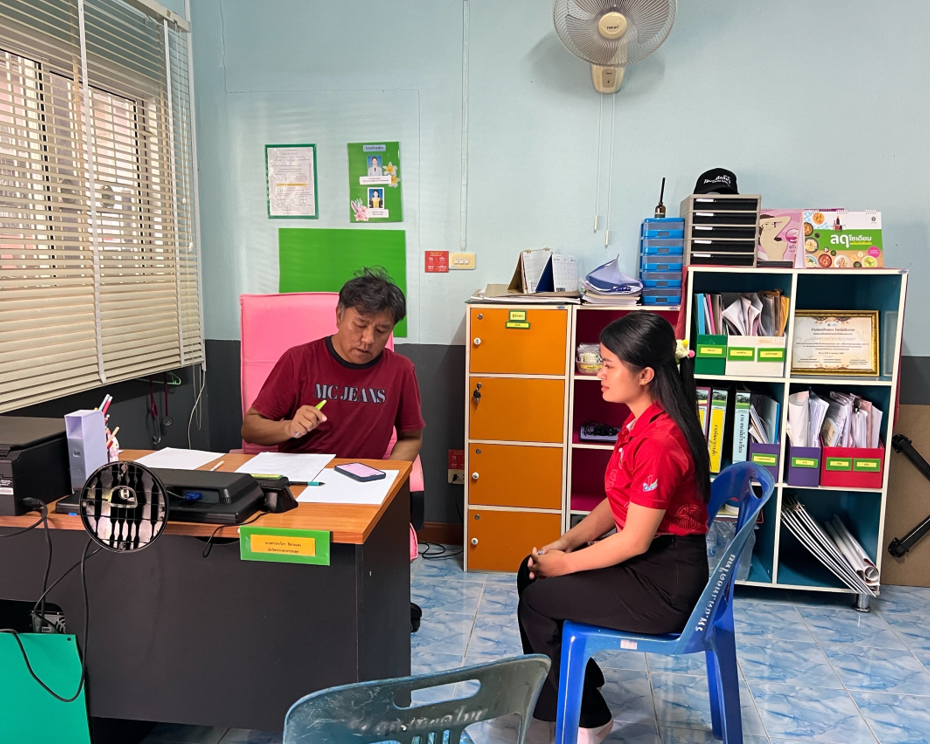TK conducted a mixed-methods research study in Chiang Rai Province, Thailand, to explore vaccine uptake among parents of young children, particularly within hill tribe and migrant communities. TK began fieldwork in earnest, balancing logistical coordination, multilingual data collection, and community engagement in complex, remote settings.
With support from the Center of Excellence for Hill Tribe Health Research, TK worked with three research assistants to prepare study sites, identify target populations, and coordinate quantitative and qualitative interviews. Early interviews were sent to Dr. Hannah Gilbert for review and feedback on transcript quality and process clarity, an essential step in ensuring rigor and consistency across languages and formats.
One of the first focus group discussions occurred at a small hospital with parents whose children had not completed their full vaccination schedules. The conversation yielded rich insight, particularly from parents who had migrated from neighboring countries, on the barriers they face in accessing vaccines. Language, mobility, documentation, and mistrust were among the challenges that surfaced, shaping TK’s understanding of how structural exclusion can influence routine care access.
In Mae Fah Luang District, one of the study’s key sites, TK conducted one-on-one interviews with six parents (three with fully vaccinated children and three with incomplete vaccinations) and one healthcare provider working in the vaccine clinic. The visit revealed valuable contrasts in experience between families who had successfully navigated the vaccination system and those still struggling to access it.
Later, TK convened a group discussion with 10 parents whose children had completed their vaccinations. The parents spoke positively about the reminder and monitoring systems implemented by the local health center, emphasizing how consistent follow-up and community-based outreach had significantly improved coverage in their villages. “The hospital calls us and reminds us every time,” one parent shared. “It helps us not forget. We feel someone is looking out for our children.”
These early field experiences highlighted obstacles and opportunities in delivering equitable vaccine access in northern Thailand’s border regions. TK’s work not only illuminated gaps in service delivery but also identified replicable practices like mobile reminders and community-based trust-building that could be scaled to reach more vulnerable families.
With deep respect for the communities involved, and a research process grounded in local partnership, TK’s project is laying the foundation for more inclusive, informed vaccine programs in a region where many children remain just out of reach of routine care.
